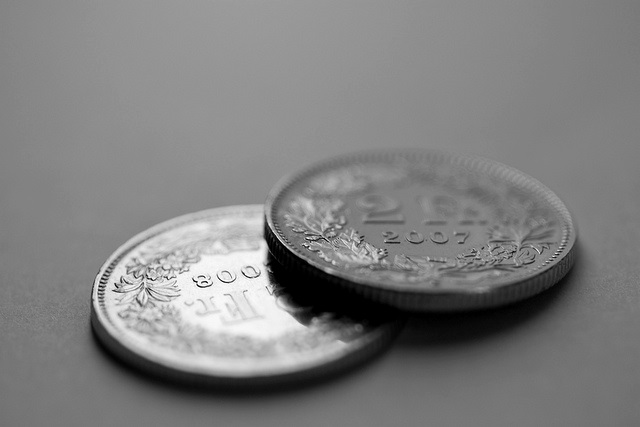Mainstream media and Swiss exporters have provided countless arguments for how strong Franc hurts exports and consequently whole economy. Switzerland is “export-driven” economy they say, strong currency makes production expensive and when exports go down, people lose jobs in respective sectors, unemployment goes up and economy gets hurt.
What these arguments lack is the other side of the trade balance sheet – the imports. When the value of Swiss incomes and savings were artificially lowered by monetary interventions, much of imported goods and services were inaccessible to them. Now they can purchase more of those or travel abroad cheaply, what makes them wealthier in general. They can also redirect part of the money saved by cheaper foreign purchases to domestic production, partially compensating exporters for the loss of revenues caused by increased price of their products.
Trade is an exchange of goods and services with equal appraisal, but higher value for either side of the trade. Both sides give away something to receive something immediately (in barter trade) or later (using media of exchange – money). There is no catallactic difference between domestic and international trade. Any difference is arbitrarily created by the governments raising bureaucratic and monetary barriers. In the long run, it doesn’t make sense for an individual or a group of people (nation) to maintain trade. It might make sense up to some point if those people consciously decide to increase their cash holdings, but in case of the Swiss people, the decision has been made for them by the central bank. They were exporting valuable goods, but getting often dubious “paper“ assets in exchange for them. By stopping the intervention, central bank merely reversed its own wrongdoing and allowed trade to re-balance to its natural and desired equilibrium.
In the short run, export industry will get hurt as a result of higher prices of the production. But because of higher value of the currency, employees can take a wage cut without lowering the standard of living (sticky wages is a fallacy based on the New Deal’s myth or by labor protectionism). Some jobs might be lost in the export industry, but can be restored in import or domestic production sectors. Balance of trade gets restored and the Swiss society will be wealthier as a result.
Overall, exporters will find new ways how to add value to their products or increase efficiency of their production. Western Germany has become the largest net exporter while having one of the strongest currencies in the world after WWII. In ten years before the currency wars started, countries like Switzerland, Singapore, New Zealand or Australia have concurrently increased both value of their currencies and their exports by tens of percents.
The real problem is that in politics and media the group which suffers is much louder than those who equally benefit.



